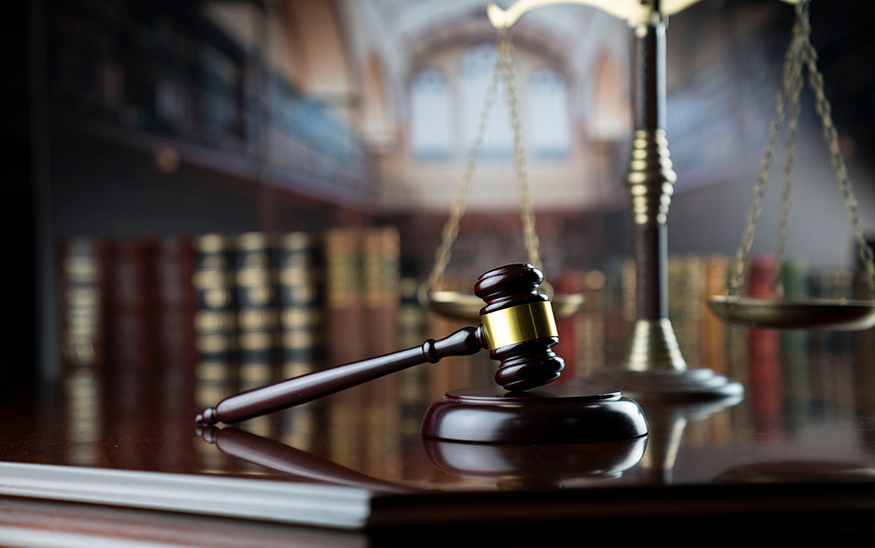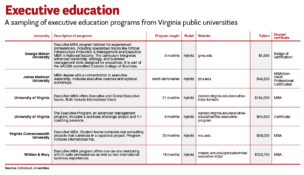Virginia Supreme Court won’t intervene in Youngkin-Senate university boards dispute
Decision is loss for governor, AG
Kate Andrews //November 17, 2025//

AdobeStock

AdobeStock
Virginia Supreme Court won’t intervene in Youngkin-Senate university boards dispute
Decision is loss for governor, AG
Kate Andrews //November 17, 2025//
Summary:
- Representing U.Va., VMI and GMU rectors, the attorney general’s office asked Virginia Supreme Court to vacate preliminary injunction blocking disputed board appointees
- Seven Supreme Court justices declined to take up petition, a win for Senate Democrats, who won July injunction
- State can still appeal to Virginia Court of Appeals, ruling says
In a loss for Gov. Glenn Youngkin and the state attorney general’s office, the Supreme Court of Virginia will not review a lower court’s ruling that blocked three Virginia universities from seating rejected Youngkin board appointees.
Representing the rectors of George Mason University, the University of Virginia and Virginia Military Institute, state Attorney General Jason Miyares‘ office had asked the state’s high court to overturn a Fairfax County Circuit Court judge’s temporary injunction issued in July. That injunction prevented the rectors from recognizing eight Youngkin board appointees who were not confirmed by a Democratic-controlled state Senate committee.
The Youngkin administration, represented by Virginia Solicitor General Kevin Gallagher, argued that the entire General Assembly must be called to vote on the matter if the Privileges & Elections Committee wished to reject gubernatorial appointees outside of regular session.
On the opposite side, nine Democratic state senators argued that the nullification of their votes would cause “irreparable harm,” an argument Fairfax County Judge Jonathan Frieden supported in his ruling this summer. The Privileges & Elections committee traditionally votes on many gubernatorial appointees throughout the year, effectively representing the entire state legislature.
In October, the Supreme Court’s seven justices heard arguments from both sides, as Miyares sought to vacate the injunction. However, in a brief order issued Monday, the court refused Miyares’ petition for review. The order notes, though, that the state can still appeal the original ruling in the state Court of Appeals.
“I am disappointed that the Supreme Court of Virginia has refused to decide whether or not one committee of one chamber in the General Assembly can unilaterally, with merely a handful of members of one party, remove incredibly qualified public servants who have been serving Virginia’s higher education institutions admirably for months,” the governor said in a statement. “The Senate committee did so without debate or reasoning or providing an opportunity for input from any of the 100 members of the House of Delegates or a majority of the members of the Senate. That is not what the Constitution prescribes. It will be important for the next administration to stand for the Constitution, as the case will now continue at the trial court level.”
The state senators’ attorneys from Willkie, Farr & Gallagher declined to comment on the order.
“Our system works best when everyone plays by the same rules,” Sen. Aaron Rouse, chair of the Privileges & Elections committee, said in a statement. “Today’s decision is a win for fairness, accountability and the rule of law in our commonwealth. We have seen the politicization of independent agencies at the federal level, it’s good to see the courts maintaining independence free from political control.”
Senate Majority Leader Scott Surovell tweeted Monday that the state Supreme Court “has affirmed the Senate P&E committees’ authority to reject gubernatorial nominations because MAGA rules don’t work in Virginia where we still have a rule of law that Youngkin and Miyares have to follow.”
The political dispute over university governance has hit a fever pitch this year under the Trump administration’s investigations into diversity, equity and inclusion initiatives and alleged antisemitism at the University of Virginia and George Mason University.
Critics of the president have accused his Department of Justice of overreach and harming academic freedom by threatening to remove federal funding for research and scholarships. Many, including faculty groups at George Mason and U.Va. and Democratic officials, have also accused the two university boards’ members of failing to defend the universities’ presidents.
All of Virginia’s public universities’ current board members were appointed by Youngkin, a Republican. Surovell and other Democrats have accused the governor of attempting to control universities through political influence by their boards, which include members with ties to the Trump White House.
Last week, former U.Va. president Jim Ryan, who resigned in July citing pressure from the DOJ, said that the push for him to exit may not have come directly from the Justice Department but may have been driven by Youngkin, board members, newly hired university legal counsel “or some combination of that group,” Ryan wrote in a 12-page narrative of the weeks leading up to his resignation.
Ryan sent the letter Friday to the U.Va. Faculty Senate, which then voted to pass a resolution demanding the resignation of Rector Rachel Sheridan and Vice Rector Porter Wilkinson, whom Ryan said directly spoke with the DOJ’s attorneys, while he was not invited to do so. Ryan calls Sheridan’s account of his resignation, which she sent to the Faculty Senate last week, “inaccurate.”
George Mason’s president, Gregory Washington, is still in office despite coming under heavy criticism by congressional Republicans and the U.S. Department of Education, which found in August that the university violated federal civil rights law, in essence favoring Black and Latino job candidates over white candidates. Washington, who has denied breaking civil rights laws, also was accused in a November House Judiciary Committee report of lying to Congress.
Meanwhile, the dispute over university governance and gubernatorial appointments extended into a spat between Youngkin and Gov.-elect Abigail Spanberger last week after Democrat Spanberger wrote a letter to U.Va.’s board members, asking them to delay naming finalists or hiring a permanent successor to Ryan until she takes office in January 2026 and has an opportunity to name appointees to university’s board.
Youngkin, in a letter to Spanberger, accused the governor-elect of trying to “bully or micromanage” the board, and said her letter was “riddled with hyperbole and factual errors and impugns both the Board of Visitors and the presidential search underway.”
P

















